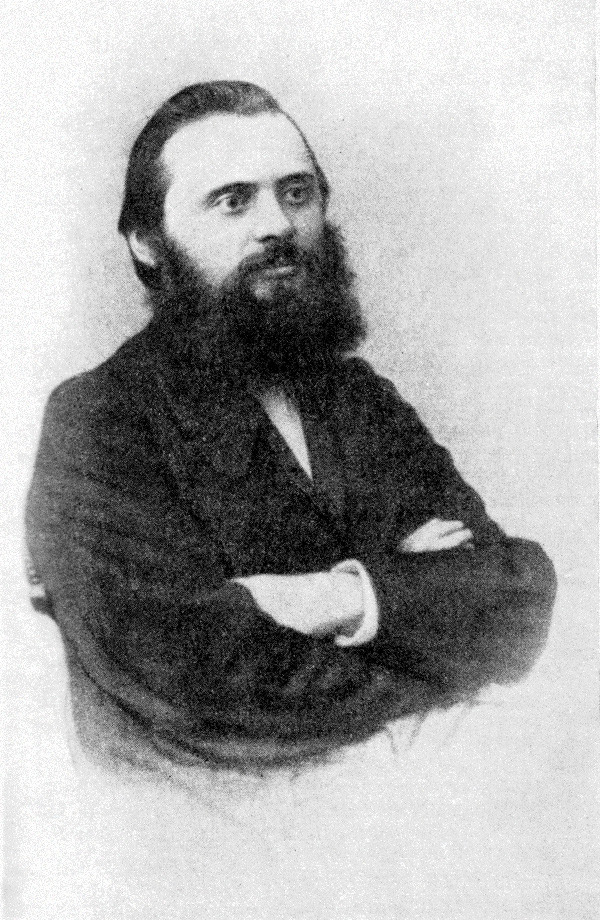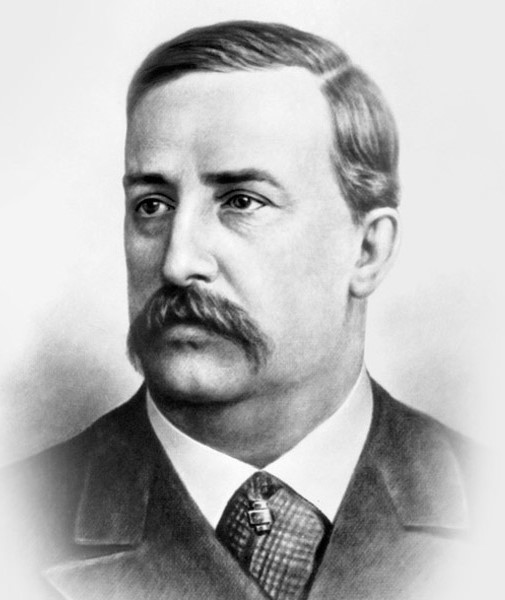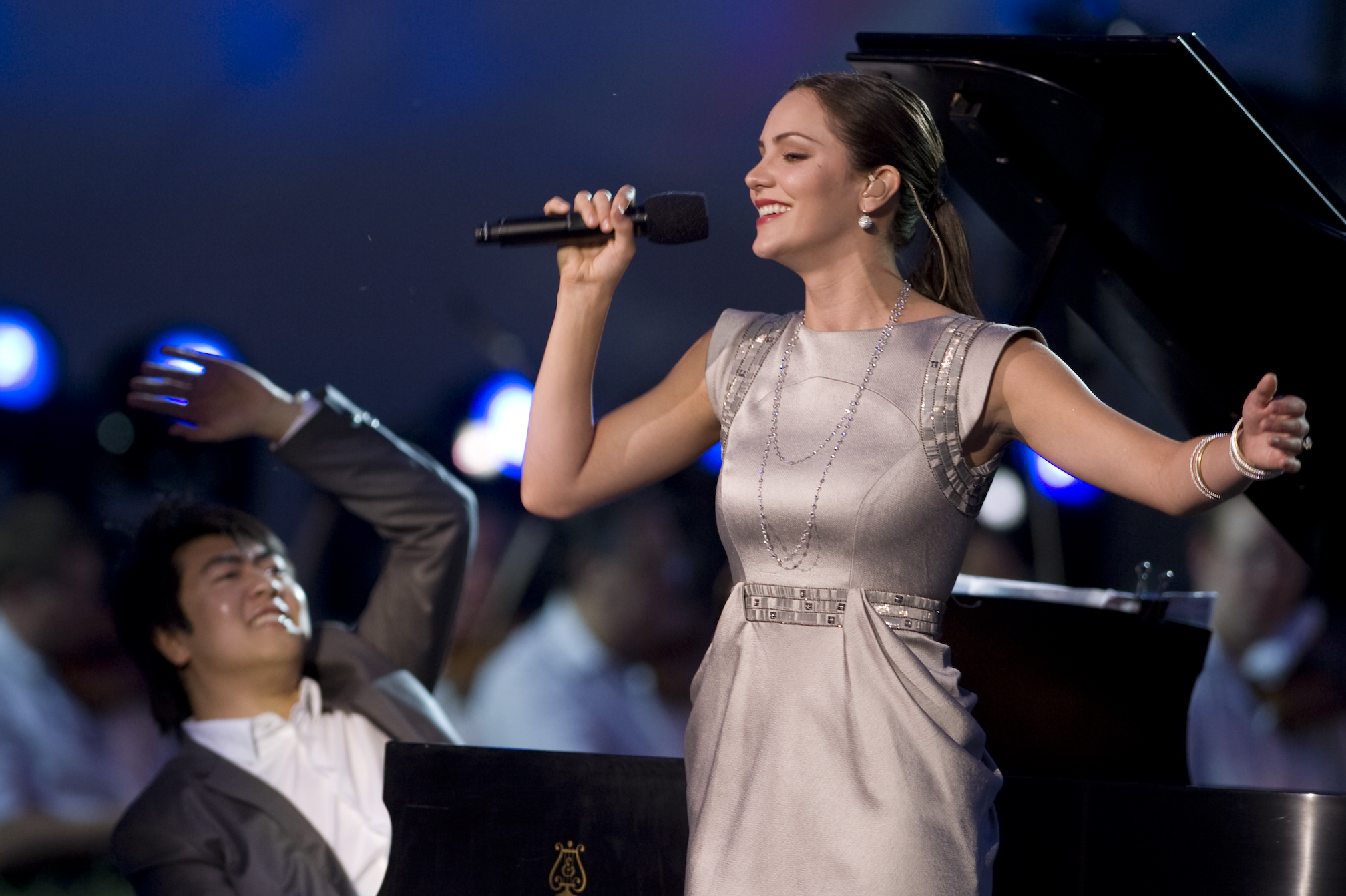|
Islamey
''Islamey: Oriental Fantasy'' (), is a composition for piano by Russian composer Mily Balakirev written in 1869. Harold C. Schonberg noted that ''Islamey'' was "at one time…considered the most difficult of all piano pieces and is still one of the knucklebusters." Its difficulty has led to the creation of numerous ossias (alternative passages) and made it popular as a virtuosic showpiece. Composition Balakirev, a committed nationalist whose music was influenced by Russian traditions, was inspired to write the piece after a trip to the Caucasus, as he relates in a letter: ...the majestic beauty of luxuriant nature there and the beauty of the inhabitants that harmonises with it – all these things together made a deep impression on me... Since I interested myself in the vocal music there, I made the acquaintance of a Circassian prince, who frequently came to me and played folk tunes on his instrument, that was something like a violin. One of them, called Islamey, a dance-tune, ... [...More Info...] [...Related Items...] OR: [Wikipedia] [Google] [Baidu] |
Mily Balakirev
Mily Alexeyevich Balakirev ( , ; ,BGN/PCGN romanization of Russian, BGN/PCGN romanization: ; ALA-LC romanization of Russian, ALA-LC system: ; ISO 9, ISO 9 system: . ; – )Russia was still using Adoption of the Gregorian calendar#Adoption in Eastern Europe, old style dates in the 19th century, and information sources used in the article sometimes report dates as old style rather than new style. Dates in the article are taken verbatim from the source and therefore are in the same style as the source from which they come. was a Russian Empire, Russian composer, pianist, and Conducting, conductor known today primarily for his work promoting musical nationalism and his encouragement of more famous Russian composers, notably Pyotr Ilyich Tchaikovsky. He began his career as a pivotal figure, extending the fusion of traditional folk music and experimental classical music practices begun by composer Mikhail Glinka. In the process, Balakirev developed musical patterns that could express ... [...More Info...] [...Related Items...] OR: [Wikipedia] [Google] [Baidu] |
Nikolai Rubinstein
Nikolai Grigoryevich Rubinstein (; – ) was a Russian pianist, conductor, and composer. He was the younger brother of Anton Rubinstein and a close friend of Pyotr Ilyich Tchaikovsky. Life Born to Jewish parents in Moscow, where his father had just opened a small factory, Rubinstein showed talent at the keyboard early on. He studied piano first with his mother, and while the family was in Berlin between 1844 and 1846, he studied piano with Theodor Kullak and harmony and counterpoint with Siegfried Dehn; during this time both he and his brother Anton attracted the interest and support of Mendelssohn and Meyerbeer. When the family returned to Moscow, Nikolai studied with Alexander Villoing, who also toured with him. He studied medicine to avoid army conscription, graduating from Moscow University in 1855. As a result of his playing, Rubinstein was welcomed in all the fashionable artistocratic houses in Moscow. He co-founded the Moscow branch of the Russian Musical Socie ... [...More Info...] [...Related Items...] OR: [Wikipedia] [Google] [Baidu] |
Simon Barere
Simon Barere (; – 2 April 1951) was a Russian-American pianist. His surname Барер is transliterated ''Barer'', but as an adult he adopted the spelling ''Barere'' in order to reduce the frequency of mispronunciation. Biography Barere was born in Odessa (then Russian Empire, now part of Ukraine) as the eleventh of thirteen children in a Jewish family. He studied at the St. Petersburg Conservatory under Anna Yesipova and then Felix Blumenfeld. Pianist Vladimir Horowitz was also a pupil of Blumenfeld, although Barere was Blumenfeld's preferred student. After graduation, he played concerts throughout the region and taught at the Kiev Conservatory. He emigrated to Berlin, then to Sweden, and finally to the United States. During the autumn of 1935, he toured the UK under the management of Harold Holt, making a number of appearances as supporting artist to Richard Tauber. Barere was especially known for his speed and finger dexterity; his rendition of Balakirev's '' Isl ... [...More Info...] [...Related Items...] OR: [Wikipedia] [Google] [Baidu] |
Ossia
() is a musical term for an alternative passage which may be played instead of the original passage. The word '' ossia'' comes from the Italian for "alternatively" and was originally spelled ''o sia'', meaning "or be it". ''Ossia'' passages are very common in opera and solo-piano works. They are usually an easier version of the preferred form of passage, but in Mily Balakirev's ''Islamey'', for instance, the urtext has ossia passages of both types (simpler and more difficult). Bel canto vocal music also frequently uses ''ossia'', also called '' oppure'', passages to illustrate a more embellished version of the vocal line. On the other hand, an ''ossia'' marking does not always indicate a change in difficulty; the piano solo music of Franz Liszt is typically full of alternative passages, often no easier or more difficult than the rest of the piece. This reflects Liszt's desire to leave his options open during a performance. Many of his ''ossia'' passages are cadenzas. An unusua ... [...More Info...] [...Related Items...] OR: [Wikipedia] [Google] [Baidu] |
Gaspard De La Nuit
''Gaspard de la nuit'' (subtitled ''Trois poèmes pour piano d'après Aloysius Bertrand''), M. 55 is a suite of piano pieces by Maurice Ravel, written in 1908. It has three movements, each based on a poem or ''fantaisie'' from the collection '' Gaspard de la Nuit – Fantaisies à la manière de Rembrandt et de Callot'' completed in 1836 by Aloysius Bertrand. The work was premiered in Paris, on January 9, 1909, by Ricardo Viñes. Ravel dedicated the piece to pianist Harold Bauer. The piece is famous for its difficulty, partly because Ravel intended the Scarbo movement to be more difficult than Balakirev's '' Islamey''. Because of its technical challenges and profound musical structure, Scarbo is considered one of the most difficult solo piano pieces in the standard repertoire. The manuscript currently resides in the Harry Ransom Center of the University of Texas at Austin. Etymology The name " Gaspard" is derived from its original Persian form, denoting "the man in char ... [...More Info...] [...Related Items...] OR: [Wikipedia] [Google] [Baidu] |
Réminiscences De Don Juan
''Réminiscences de Don Juan'' (S. 418) is an opera fantasy for piano by Franz Liszt on themes from Mozart's 1787 opera ''Don Giovanni''. Description The piece begins with music sung by the Commendatore, both from the graveyard scene where he threatens Don Giovanni ("''Di rider finirai pria dell'aurora! Ribaldo audace! Lascia a' morti la pace!''" — "''Your laughter will not last, even till morning. Leave the dead in peace!''") and from the finale where he condemns Don Giovanni to Hell. The love duet of Don Giovanni and Zerlina follows ("'' Là ci darem la mano''"), along with two variations on this theme, then an extended fantasy on the Champagne aria ("''Fin ch'han dal vino''"), and finally the work concludes with the Commendatore's threat. In contrast to perhaps the majority of opera fantasies composed during the nineteenth century, Liszt's Don Giovanni paraphrase is a much more tightly controlled and significant work. Where the standard opera transcription is merely a ... [...More Info...] [...Related Items...] OR: [Wikipedia] [Google] [Baidu] |
Alexander Scriabin
Alexander Nikolayevich Scriabin, scientific transliteration: ''Aleksandr Nikolaevič Skrjabin''; also transliterated variously as Skriabin, Skryabin, and (in French) Scriabine. The composer himselused the French spelling "Scriabine" which was also the most popular spelling used in English-language publications during his lifetime. First editions of his works used the RomanizationsScriabine,Scriàbine, andSkrjábin"., group=n () was a Russian composer and pianist. Before 1903, Scriabin was greatly influenced by the music of Frédéric Chopin and composed in a relatively tonal, late- Romantic idiom. Later, and independently of his influential contemporary Arnold Schoenberg, Scriabin developed a much more dissonant musical language that had transcended usual tonality but was not atonal, which accorded with his personal brand of metaphysics. Scriabin found significant appeal in the concept of Gesamtkunstwerk as well as synesthesia, and associated colours with the various harmonic t ... [...More Info...] [...Related Items...] OR: [Wikipedia] [Google] [Baidu] |
Musical Quotation
Musical quotation is the practice of directly quoting another work in a new composition. The quotation may be from the same composer's work (self-referential), or from a different composer's work (appropriation). Sometimes the quotation is done for the purposes of characterization, as in Puccini's use of ''The Star-Spangled Banner'' in reference to the American character Lieutenant Pinkerton in his opera ''Madama Butterfly'', or in Tchaikovsky's use of the Russian and French national anthems in the ''1812 Overture'', which depicted a battle between the Russian and French armies. Sometimes, there is no explicit characterization involved, as when Luciano Berio used brief quotes from Johann Sebastian Bach, Ludwig van Beethoven, Alban Berg, Pierre Boulez, Gustav Mahler, Claude Debussy, Paul Hindemith, Maurice Ravel, Arnold Schoenberg, Karlheinz Stockhausen, Richard Strauss, Igor Stravinsky, Anton Webern, and others in his ''Sinfonia (Berio), Sinfonia''. Quotation vs. variation Musical ... [...More Info...] [...Related Items...] OR: [Wikipedia] [Google] [Baidu] |
Alexander Borodin
Alexander Porfiryevich Borodin (12 November 183327 February 1887) was a Russian Romantic composer and chemist of Georgian–Russian parentage. He was one of the prominent 19th-century composers known as " The Five", a group dedicated to producing a "uniquely Russian" kind of classical music. Abraham, Gerald. ''Borodin: the Composer and his Music''. London, 1927. Borodin is known best for his symphonies, his two string quartets, the symphonic poem '' In the Steppes of Central Asia'' and his opera '' Prince Igor''. A doctor and chemist by profession and training, Borodin made important early contributions to organic chemistry. Although he is presently known better as a composer, he regarded medicine and science as his primary occupations, only practising music and composition in his spare time or when he was ill. As a chemist, Borodin is known best for his work concerning organic synthesis, including being among the first chemists to demonstrate nucleophilic substitution, as w ... [...More Info...] [...Related Items...] OR: [Wikipedia] [Google] [Baidu] |
Maurice Ravel
Joseph Maurice Ravel (7 March 1875 – 28 December 1937) was a French composer, pianist and conductor. He is often associated with Impressionism in music, Impressionism along with his elder contemporary Claude Debussy, although both composers rejected the term. In the 1920s and 1930s Ravel was internationally regarded as France's greatest living composer. Born to a music-loving family, Ravel attended France's premier music college, the Paris Conservatoire; he was not well regarded by its conservative establishment, whose biased treatment of him caused a scandal. After leaving the conservatoire, Ravel found his own way as a composer, developing a style of great clarity and incorporating elements of modernism (music), modernism, baroque music, baroque, Neoclassicism (music), neoclassicism and, in his later works, jazz. He liked to experiment with musical form, as in his best-known work, ''Boléro'' (1928), in which repetition takes the place of development. Renowned for his abi ... [...More Info...] [...Related Items...] OR: [Wikipedia] [Google] [Baidu] |
Lang Lang
Lang Lang (; born 14 June 1982) is a Chinese pianist who has performed with major orchestras around the world and appeared at many leading concert halls. Active since the 1990s, he was the first Chinese pianist to be engaged by the Berlin Philharmonic, the Vienna Philharmonic and many of the top American orchestras. In 2000, a ''Chicago Tribune'' music critic called him "the biggest, most exciting young keyboard talent I have encountered in many a year of attending piano recitals." He was also a judge on the first two series of the British music competition television series '' The Piano''. Early life and education Lang Lang was born in Shenyang, China, in 1982 to a family of the Manchu Niohuru clan. His father Lang Guoren is a musician, playing the erhu. Both his father and mother, also a musician, were displaced to work on rice farms in the country during the Cultural Revolution, before Lang was born. The ''Tom and Jerry'' episode '' The Cat Concerto'', which feature ... [...More Info...] [...Related Items...] OR: [Wikipedia] [Google] [Baidu] |
Ivo Pogorelić
Ivo Pogorelić (also Ivo Pogorelich; born 20 October 1958) is a Croatian pianist. He is known for his sometimes unorthodox interpretations, which have brought him a sizable following and both praise and criticism from musical experts. A musician of wide repertoire, his recordings include works by a variety of composers from the early 18th through 20th centuries. Early life Pogorelić was born in Belgrade, Yugoslavia, to a Croatian father and a Serbian mother; he became a Croatian citizen after the breakup of Yugoslavia. Pogorelić received his first piano lessons when he was seven and attended the Vojislav Vučković Music School in Belgrade until he was 12, when he was invited to Moscow to continue his studies at the Central Music School with Evgeny Timakin. He studied alongside the pianist Mikhail Pletnev, with whom he formed a lasting friendship. He later graduated from the Moscow Conservatory, where he studied with Vera Gornostayeva and Yevgeny Malinin. In 1976 he ... [...More Info...] [...Related Items...] OR: [Wikipedia] [Google] [Baidu] |





